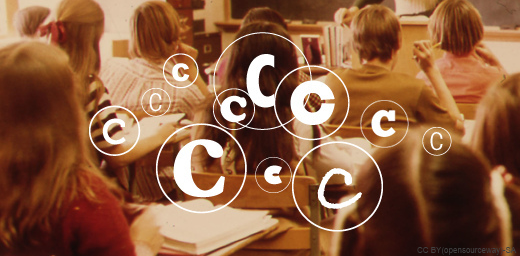La reforma a la Ley de Derechos de Autor de Brasil
by Digital Rights LAC on June 10, 2013
The advocates of access to knowledge cause perceive the current moment as a turning point on the formulation of a democratic management, concerned with the interests of all those who dedicated themselves to the process of updating copyright and ensuring its social function.
Por Eduardo Magrani, Centro de Tecnologia e Sociedade.
The Brazilian Copyright Law reform imposes itself as an efficient and viable solution to the contemporary Brazilian crisis. However, it should not be considered separately from all the other social and legal solutions, since it is only one of many other instruments destined to ensure the balance between the copyright interests and the interests and rights of society in general.
The legislative copyright reform consists on a great necessity and is the adequate path to update the law to Brazil´s contemporary needs. Also it could correct deviations related to both the process of maximizing the copyright protection and the problematic associated to the distorted law-making process.
Conscious of the current law shortcomings and of all the problems it involves, Juca Ferreira´s mandate as Minister of Culture (2008-2010), under the commands of President Lula and in accordance to the previous Minister´s management, attempted through the copyright law reform to develop and to strength the country’s cultural economy. These measures would ensure, at the same time, the authors’ constitutional rights and society’s right to education, culture and information. Historically, it is the first time Brazil adopts a progressive attitude towards copyright regulation.
After a long process of hearings, seminars and meetings, initiated in 2007, that involved many different groups of Brazilian society, the Ministry of Culture elaborated a bill to Copyright Law reform, which was taken to public consultation on June 2010.
During public consultation, the Ministry of Culture presented elucidative explanations that allowed society to understand the exact government intention towards Copyright Law reform. Among the main goals of the proposal, we can highlight the following: to widen and ensure effective incentives and ways of protection to authors and their creations; to promote the balance between the rights of all stakeholders; to widen and democratize the access of general population to cultural goods and services; to ally the current legislation to the new paradigms established by the digital environment; and to enable State´s actions towards the creation of public policy to promote, supervise, regulate, and protect both society and national interests inside and outside the country.
In December 23rd 2010 the bill´s drafting was finished and its final text was sent to the Chief of Staff with alterations inspired mainly by the almost eight thousand comments made by society through online mechanisms of public consultation.
On January 2011, Ana Buarque de Hollanda was nominated to the head of the Ministry of Culture, and due to this management modification, the Copyright Law reform bill returned from the Chief of Staff to the Ministry of Culture. During the text analysis made by the new Minister of Culture, together with the head of the Intellectual Property section from the Secretary of Cultural Policies, it was decided that the text would be reopened to public consultation. This new process occurred between April 25th and May 30th 2011. This time, however, it was done in a less democratic and accountable manner, since only specialists could comment about very few selected topics. After this chapter of the bill’s elaboration was finished, the text was sent back to the Chief of Staff.
Since the first month of her management, Ana de Hollanda made clear she didn’t share her predecessors view about the promotion of free culture, especially on the online environment. Therefore, she turned backwards.
After almost two years of harsh criticism, Ana de Hollanda left the Ministry, leaving behind a legacy of political inability to deal with important civil society groups. She was also known for going against the interests related to free culture and access to knowledge.
On September 2012, president Dilma Rousseff nominated senator Marta Suplicy – member of PT, ex-Mayor of São Paulo and ex-Minister of Turism – to replace Ana de Hollanda. As one of her first acts as Minister of Culture, Mrs. Suplicy brought back Marcos Souza to his former office. Before being dismissed by Ana de Hollanda, Mr. Souza was responsible for the head of the Intellectual Property section under Gilberto Gil’s and Juca Ferreira’s consecutive mandates as Ministers of Culture (2003-2010).
Marcos Souza was the main advogate inside the government of the copyright law reform. He was discharged from his office in March 1st 2011, two months after Ana de Hollanda had been appointed to be the new Ministry of Culture. Through this action, Ana de Hollanda made clear her disagreement towards one of the main pillars of Lula’s cultural policy.
Due to management change, the bill returned to the Ministry of Culture. Soon it must be sent to National Congress, reawakening the debate on the importance of copyright law reform.
The advocates of access to knowledge cause perceive the current moment as a turning point on the formulation of a democratic management, concerned with the interests of all those who dedicated themselves to the process of updating copyright and ensuring its social function.
Eduardo Magrani, profesor e investigador del Centro de Tecnología y Sociedad (CTS)
E-mail: eduardomagrani (at) gmail.com






